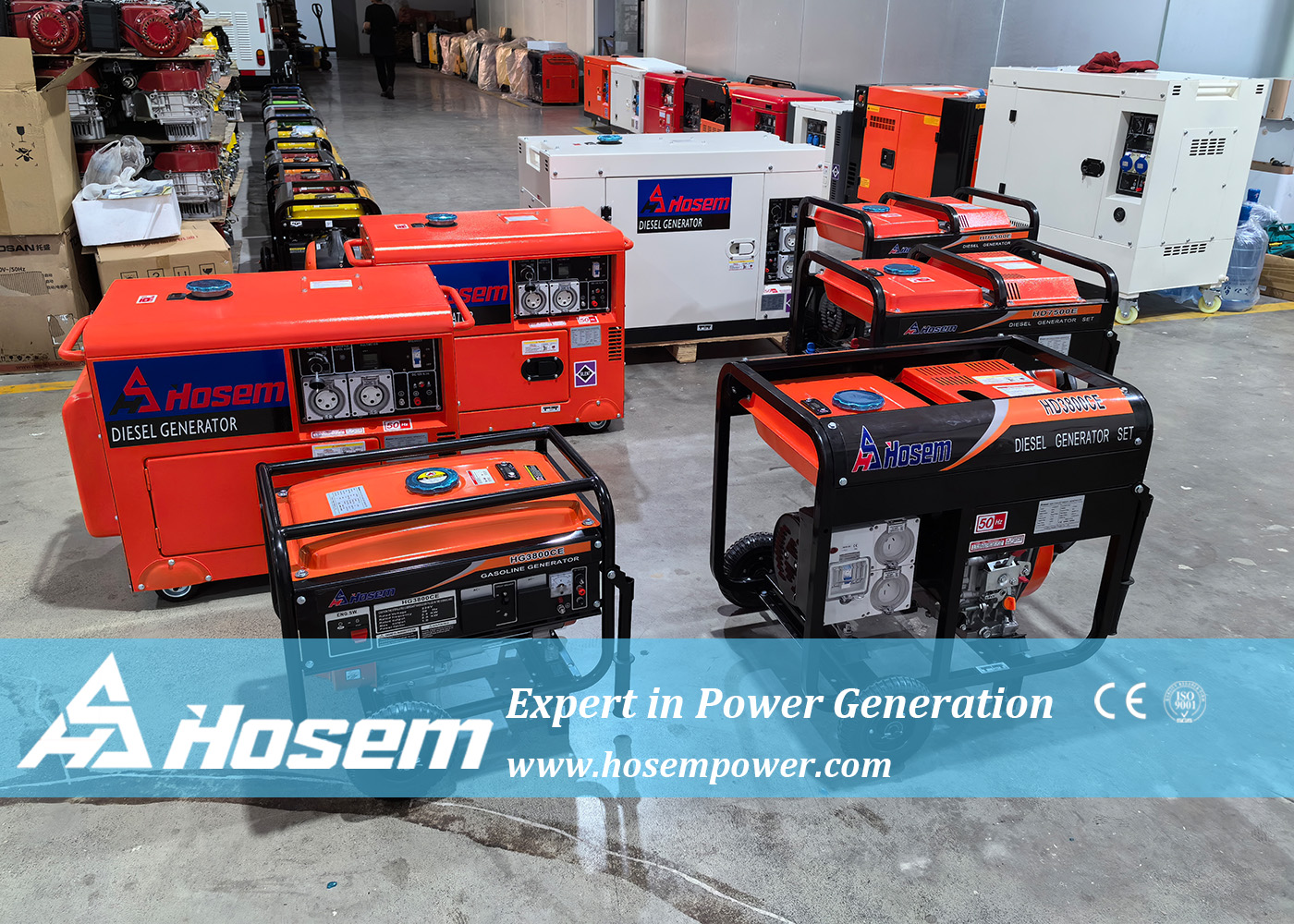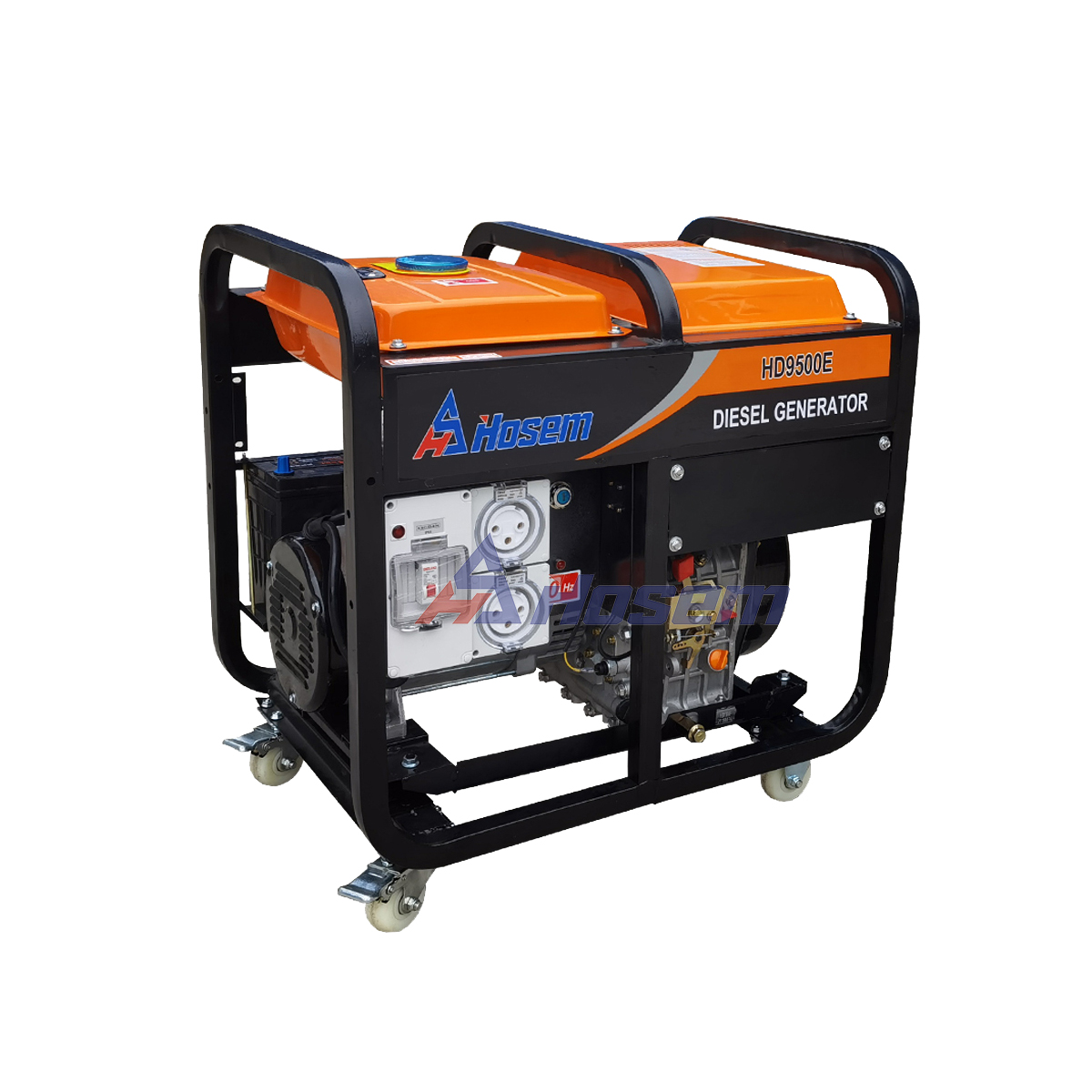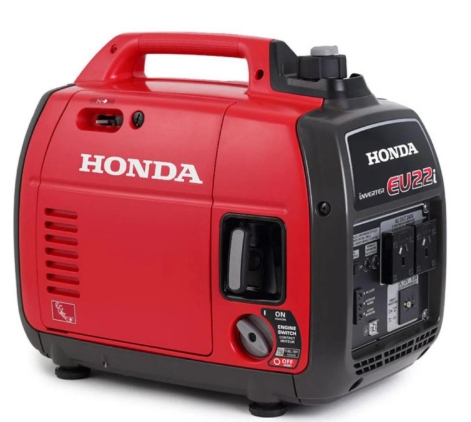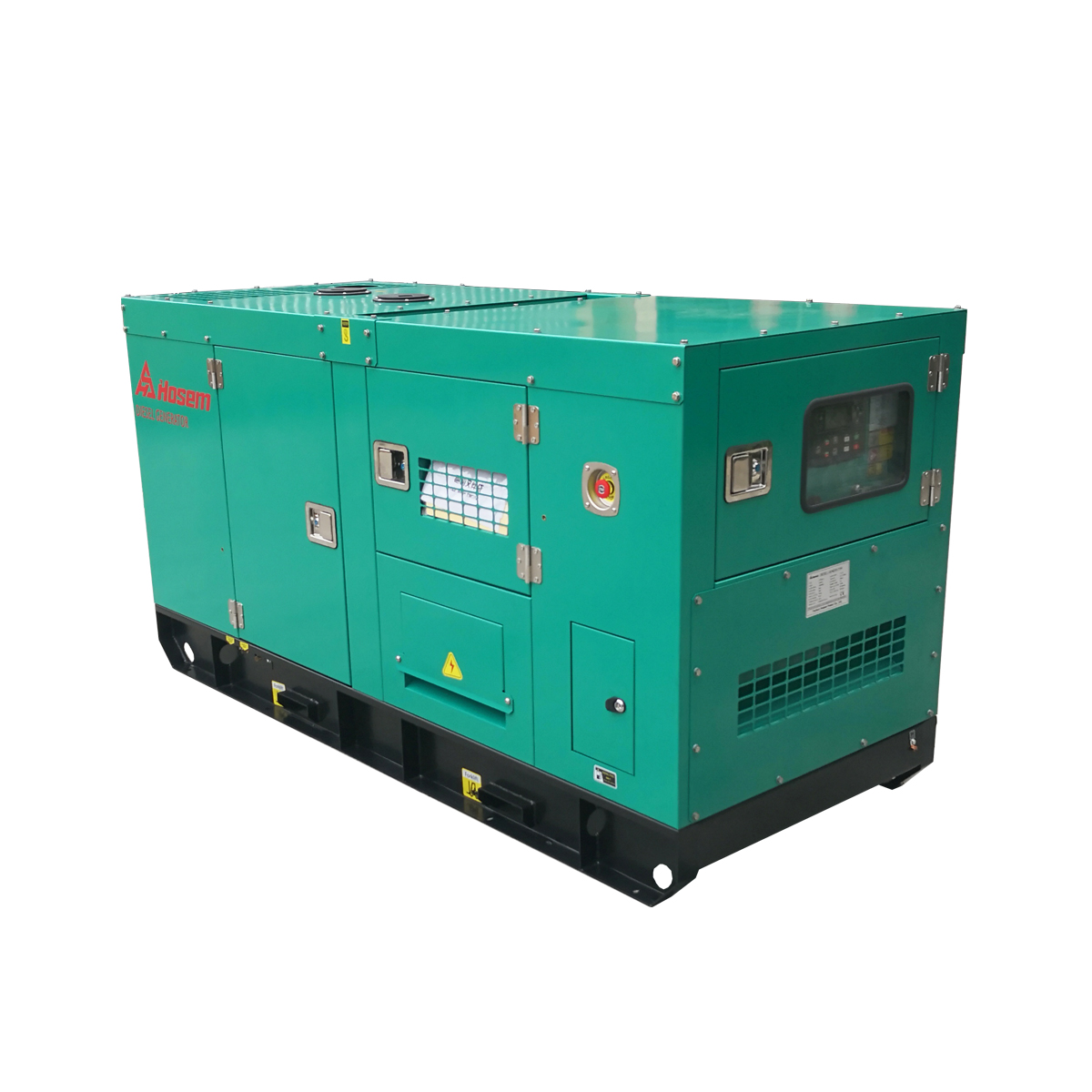-
Tél : +86-591-86397381
-
E-mail : sale@hosempower.com
-
Skype : +86-13205904365
Tél : +86-591-86397381
E-mail : sale@hosempower.com
Skype : +86-13205904365


Whether you’re preparing for power outages, planning outdoor events, or needing a reliable power source for your home or business, buying a generator is a significant decision. With so many options available, it’s essential to understand your needs and the features that matter most. This tutorial will guide you through the process of buying the right generator for your requirements.
The first step in buying a generator is understanding how much power you need. Generators are rated in watts (W) or kilowatts (kW), and their capacity determines what appliances and devices they can support.
Steps to Calculate Your Power Needs:
Example Calculation
(For a House)
Highest Starting Wattage: 2,500W
Total Required Wattage: 2,500 + 2,500 = 5,000W
Buffer (20%): 5,000 x 1.2 = 6,000W
In this case, you’d need a generator with at least 6,000 watts of capacity.
(For a Factory)
| Equipment | Running Wattage (W) | Starting Wattage (W) |
| Conveyor Belt System | 5,000 | 7,000 |
| Industrial Oven | 10,000 | 15,000 |
| Packaging Machine | 3,000 | 4,500 |
| Lighting System | 2,000 | 2,000 |
| HVAC System | 8,000 | 12,000 |
| Compressor | 6,000 | 9,000 |
| Total | 34,000 | 15,000 (highest) |
Total Power Requirement = 34,000W + 15,000W = 49,000W
With 20% Buffer = 49,000W + 9,800W = 58,800W
Recommended Generator Size = 60 kW
Generators come in various types, each suited for different applications. Here are the main categories:

Best For: Temporary power needs, outdoor events, or small homes.
Pros: Affordable, easy to move, and versatile.
Cons: Limited power output, requires manual setup, and runs on gasoline or propane.

Best For: Sensitive electronics (e.g., laptops, phones) and outdoor activities.
Pros: Quiet, fuel-efficient, and produces clean power.
Cons: Higher cost and lower power output compared to conventional portable generators.
Standby Generators (Water-cooled)

Best For: Whole-house backup power for homes or businesses.
Pros: Automatically turns on during outages, high power output, design for last, quality design built to last.
Cons: Expensive, requires professional installation, and permanent placement.
Stick to reputable brands known for quality and reliability, such as:
Portable Generators: Honda, Generac, Champion
Standby Generators: Cummins, Perkins, Deutz.
Inverter Generators: Yamaha, Westinghouse, Jackery
If you're currently looking for a standby generator for your home or factory, look no further. We are a water-cooled diesel generator set manufacturer specializing in high-quality generators. Our focus is solely on delivering reliable, top-performance products. Contact us today to experience our professional service and find the perfect power solution for your needs.
For more information about water-cooled generators designed for industrial applications, feel free to check out my other article, "Top 10 Chinese Diesel Generators - 2025".
Generators can run on a variety of fuels, and the fuel type you choose can impact the cost of operation, convenience, and availability. Common fuel types include:
Gasoline: Common in portable generators. Gasoline is widely available and relatively inexpensive, but it doesn’t last as long in storage and can be dangerous if improperly handled.
Diesel: Diesel generators tend to be more fuel-efficient and have a longer lifespan than gasoline generators. They are often used in larger industrial or standby generators due to their durability and lower operating costs.
Natural Gas: Standby generators often run on natural gas, which is a cleaner and more environmentally friendly option. It’s also a more convenient option if your home or business already has a gas line.
Propane: Some generators can run on propane, which has the benefit of being a cleaner fuel than gasoline or diesel. Propane can also be stored indefinitely without degrading.
Run time refers to how often and for how long you plan to use the generator. If you plan to use the generator frequently, running it for 2 hours a day or more, a water-cooled generator set would be a great choice due to its efficiency and long-term durability. However, if your usage is occasional and typically under 2 hours at a time, an air-cooled generator is a more economical option.
Noise Level: Measured in decibels (dB); lower dB ratings are quieter.
Portability: Look for wheels and handles if you need to move the generator frequently.
Outlets: Ensure the generator has the right types and number of outlets for your devices.
Electric Start: Allows for easy starting with the push of a button.
Transfer Switch: Essential for safely connecting a standby generator to your home’s electrical system.
Choosing the right generator can seem overwhelming, but by carefully considering your power needs, fuel options, and budget, you can narrow down your choices and find the perfect match. If you’re currently in the market for a diesel generator set, don’t hesitate to reach out to us. Our sales team will provide you with a tailored solution that suits your requirements.
Email: sale@hosempower.com
WhatsApp: +86-13205904365
Happy shopping, and stay powered up!